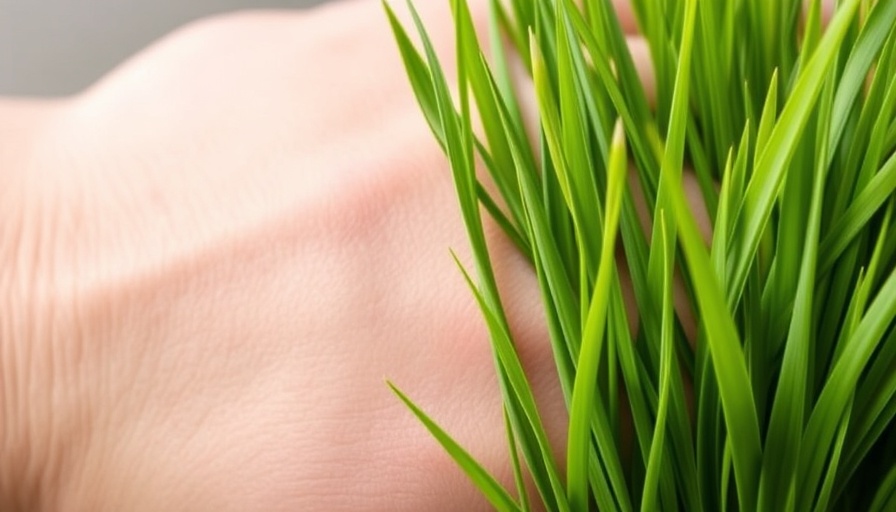
A Breakthrough in Wound Recovery: The Power of Barley Grass
In recent years, barley grass has emerged as a natural superfood with incredible potential, especially in the realm of wound healing. This young cereal grass is not just a simple plant; it’s packed with antioxidants, anti-inflammatory compounds, and essential nutrients that can significantly aid recovery. Studies have pointed out its bioactive properties, making it a focus for ongoing research in health and nutrition. In particular, evidence suggests it may play a dual role in promoting wound healing while also exhibiting properties that inhibit cancer cell growth.
The Science Behind Barley Grass
A 2020 study conducted in Kathmandu, Nepal, unveiled the potent bioactivity of barley grass. Researchers discovered that barley grass is rich in phenolic compounds and flavonoids, which are key players when it comes to antioxidant activity. These nutrients effectively neutralize harmful free radicals, helping to lower oxidative stress—a factor known to slow down wound healing. Stabilizing red blood cell membranes also indicates the anti-inflammatory capabilities of barley grass, making it an ideal candidate for health supplements aimed at promoting recovery.
Supporting Wound Healing Mechanisms
Another pivotal study from the University of Rzeszow in Poland added depth to our understanding of barley grass's impact on healing processes. Researchers applied a model known as the "scratch" assay, which simulates wound healing in vitro. Their findings indicated that barley grass juice spurs healing in normal fibroblasts (the cells responsible for tissue repair) by stimulating beneficial cellular pathways, such as NF-κB/HO-1 and insulin/IGF-1. This stimulation encourages antioxidant defenses and enhances tissue repair, thus suggesting that incorporating barley grass juice into our diet could be particularly beneficial for those recovering from wounds.
Potential for Cancer Treatment and Management
While primarily recognized for its benefits in wound recovery, barley grass is also garnering attention for its potential application in cancer treatment. The same antioxidant properties that protect healthy cells can simultaneously inhibit the growth of cancer cells. This dual-action trait signifies that barley grass may be a valuable addition to comprehensive cancer care plans, serving as a complementary approach alongside traditional therapies.
Practical Tips: How to Incorporate Barley Grass into Your Diet
If you're interested in leveraging the benefits of barley grass for wound recovery or overall health, here are a few practical suggestions:
- Juices and Smoothies: Incorporate barley grass juice into your morning smoothies for a nutrient boost.
- Powdered Supplements: Look for high-quality barley grass powder that can be mixed into various dishes, from soups to salads.
- Capsules: If smoothies aren't your style, consider swallowing barley grass in capsule form for easy consumption.
By adding this remarkable superfood to your diet, you can significantly enhance your recovery journey while also reaping its myriad other health benefits.
Future Implications for Health and Medicine
As research continues to unfold, the future for barley grass appears bright within the health and wellness industry. Its multifunctional properties make it a subject of interest not only for nutritionists but also for healthcare professionals looking for innovative treatments for a variety of conditions, including wound care and cancer therapy. Such discoveries may reshape how we view natural remedies in modern medicine.
Encouragement for Health Seekers
Taking control of your health doesn't have to be complicated. By understanding and incorporating nature's powerful resources like barley grass, anyone can contribute to their healing journey in a sustainable way. With its promising capabilities, it’s essential to keep barley grass on your radar as you explore holistic health options.
Now is the perfect time to act! Investigate the health benefits of barley grass and consider integrating it into your lifestyle. If you’re interested in exploring this further, don’t hesitate to seek reliable health products containing barley grass and consult with a healthcare provider for personalized advice.
 Add Row
Add Row  Add
Add 




Write A Comment